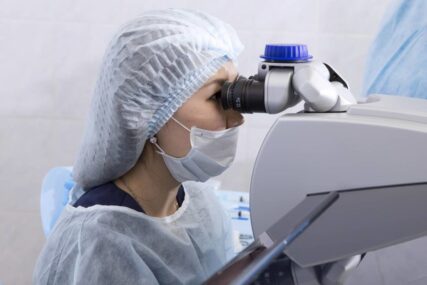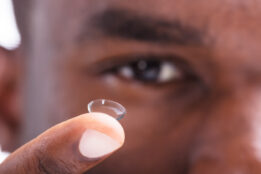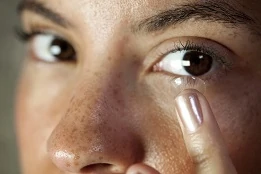Research Compares Risk of Microbial Keratitis From Contacts and LASIK

Microbial keratitis is a relatively rare complication associated with contact lens use, as well as LASIK postoperatively. It is an infection of the cornea, the surface of your eye, and it can result in serious and even sight-threatening consequences for the health of your eye and vision.
A study published in the January issue of the Journal of Cataract and Refractive Surgery, “Risk for Microbial Keratitis: Comparative Meta-Analysis of Contact Lens Wearers and Post-Laser In Situ Keratomileusis Patients,” has been in the news and, if you are a contact lens wearer, it might have caught your attention.
What is Microbial Keratitis?
There are several forms of microbial keratitis including bacterial, fungal and viral. Often people with microbial keratitis experience a sudden onset of pain in the eye, excessive tearing, discharge from the eye and an increased sensitivity to light. If you experience any of these symptoms, it is critical for you see your ophthalmologist right away for evaluation and treatment to prevent vision loss.
What the Study Found
The study compared the incidence of microbial keratitis over time among contact lens wearers and LASIK patients. The study authors conducted the study by reviewing the available published clinical research on the topic. In total:
- Eight studies were reviewed that included microbial keratitis patients wearing soft daily-use and RGP daily-use lenses.
- Nine studies were reviewed microbial keratitis patients wearing soft-extended contact lenses.
- Nine studies were reviewed involving incidence of microbial keratitis following LASIK.
The study showed that one year of using extended wear of soft contact lenses led to 3 times as many cases of microbial keratitis than LASIK. Because many people use extended wear contacts, including overnight, those who want to reduce their risk for microbial keratitis might benefit from LASIK.
While this one study would indicate that extended wear contact lens users may want to evaluate their vision correction options, reviewing the data first hand to understand the facts for yourself is important. Your ophthalmologist can answer any questions you may have about your individual risk and what vision correction options are best suited to your needs.




